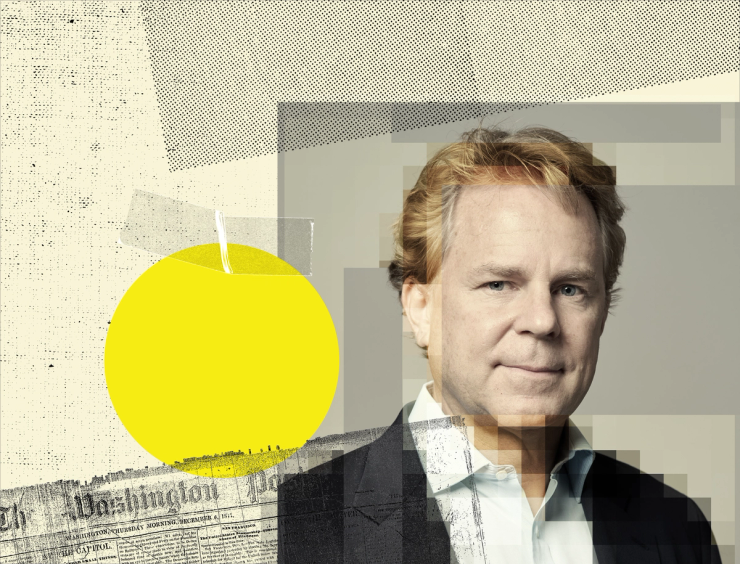I’ve spent over 30 years building news media companies and leading some of the world’s most respected mastheads — from The Atlantic and The Economist to Bloomberg. For the past two years, my partner Ben Smith and I have been building Semafor, a new media company with a clear mission: restoring trust in news through transparency and impartiality.
I wanted to reach out with some thoughts on your recent decision to end The Washington Post’s tradition of presidential endorsements. I appreciate your candor and take you at your word that this was a “principled” decision. But I’m writing with a sense of urgency, because as leaders responsible for protecting one of democracy’s core pillars, I believe there’s a lot more we can do. And I hope this letter inspires you to step forward, accelerate your efforts, and join me, my colleagues at Semafor, and other industry leaders in tackling the urgent mission of restoring trust in news.
To restore trust in our information sources, we need to look forward, not backward. Most of the news industry is still tinkering with dying 20th century models, importing forms and ideologies from printing presses into digital spaces, moving the deck chairs on the Titanic. Respectfully, your decision to end endorsements falls into this category. As the decades of tech-driven chaos settle, publishers may be overcome with nostalgia — but readers are desperate for new forms of journalism to help them navigate this new world. As leaders of this industry, this is our highest responsibility, especially at this fragile moment when AI will soon further complicate this challenge.
The crisis in consumer trust in news isn’t new — and it wasn’t sparked by 200 years of editorial board presidential endorsements. Historically, these endorsements came during high-trust periods in American media, clearly separated in the opinion pages and widely understood by readers and politicians. And the endorsements have often transcended partisan lines — in 1956 The New York Times endorsed Eisenhower, and four years later, JFK.
In fact, the root of consumer distrust in news is indisputably the product of 20 years of radical technological changes and the social shifts that came with them. The internet and then social media broke down our information networks. The social media that began as optimistic and open turned toxic more than a decade ago, unleashing cacophonous, tribal, partisan, and radicalizing forces, algorithmically serving the lowest common denominator and amplifying the basest content, presenting people with alternate facts that they want to hear rather than the shared facts they need. Simply put, the sources that should be untangling our greatest challenges are making things worse.
Our company Semafor is attacking this opportunity with the most talented team in global news and the backing of 25 of the world’s most respected, high integrity investors. We launched in 2022 with a singular mission — to innovate wildly and boldly with the goal of re-establishing trust in news. In just twenty four months, we invented a new article format that separates news from analysis and opinion called the Semaform. We replaced the anachronistic (and colonial) legacy foreign correspondent model with a new approach to news-gathering based on hiring local and regional reporters steeped in the cultures, languages and norms of the geographies they report from. (In 2024, who wants to learn about what’s happening in Nairobi from a young American Columbia J-School graduate?) We invented Semafor Signals, a new journalism product that rapidly delivers ideologically and geographically-balanced context to the most important news of the day.
We’re proud of the degree to which we’ve moved the needle, and we see elements of our approaches being adopted across other organizations. The great global news institutions have begun to move, faster or slower, in similar directions. The ones that move fast will survive. But they are operating in an industry that has lost its orientation, its sense of direction — and most of its business-side talent and leadership.
To restore trust in news we need radical innovation and visionary leaders — particularly at the handful of great, legacy outlets positioned to survive. You wrote your letter about the news business in the first person plural, and I was glad to see it. We desperately need bold, disruptive entrepreneurs like you to reimagine the future.
But we need you, Jeff, to roll up your sleeves and get in the game. A last minute, controversial decision to cancel presidential endorsements is the kind of backward-looking tinkering that ultimately slows down this reinvention. Instead we need Jeff Bezos-level talent, influence and power on the “coal face” of our business making things happen.
Let’s start with a bold move: Please join Semafor and me at a national summit on “Innovating to Restore Trust in News” that we will convene in Washington, D.C., in early 2025. Picture the top minds in publishing, journalism, media, and investing, all in one room, tackling the trust crisis with real urgency. We’ve got a playbook we’d be glad to share, and we’d love to better understand yours and others. Let’s be the ones to turn our “fading” industry around. Reality is indeed undefeated, and it’s time to get real.

